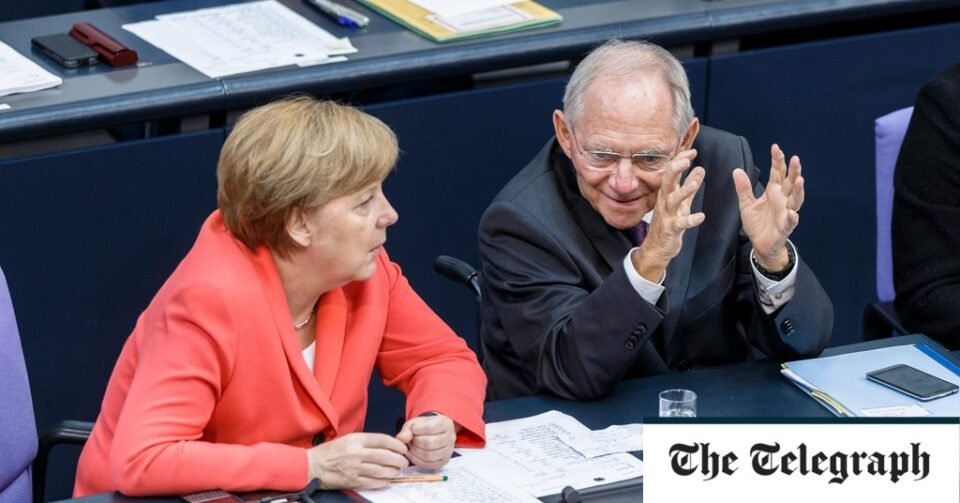Wolfgang Schäuble, who has died aged 81, was once described in this newspaper as the “big bad wolf of the eurozone”, but as the ultra-hawkish German finance minister under Angela Merkel he earned huge respect, and made a few enemies, by helping to steer the currency union through the debt crisis that followed the global financial crash of 2008.
Earlier, as interior minister of the German Federal Republic under Chancellor Helmut Kohl, Schäuble played a key role in the negotiations that led to reunification with the communist German Democratic Republic after the fall of the Berlin Wall.
The second of three sons, Wolfgang Schäuble was born on September 18 1942 in Freiburg im Breisgau, in the south-west region of Baden Württemberg, into a staunchly Lutheran family. His father Karl, a tax adviser, served postwar as a member of the regional parliament.
Wolfgang attended schools in Triberg and Hausach, then read law and economics at Freiburg and Hamburg universities before completing a doctorate on accounting standards.
He began work as a tax official but politics was his real passion. An active member of the Christian Democratic Union (CDU) youth movement in his teens, in 1972, aged 30, he was elected to the Bundestag, representing the constituency of Offenburg. He went on to win the seat 14 times in a row and was still a sitting member when he died – making him the longest-serving parliamentarian in German history.
Schäuble’s career took off in the 1980s when Chancellor Helmut Kohl appointed him CDU chief whip, then, in 1984, head of the chancellery (chief of staff) and minister for special affairs. In April 1989, having established himself as Kohl’s right-hand man, he was promoted to minister of the interior.
Later that year Kohl put him in charge of the negotiations for reunification. He signed the Unification Treaty in August 1990, recalling the moment as “the high point of my political life”.
By the time Germany was reunited on October 3 1990, Schäuble was being tipped as a future chancellor, but nine days later, at a campaign meeting in his constituency, he was shot by a gunman with a history of mental illness who wounded him in the face and chest, causing spinal damage and leaving him paralysed from the waist down.
Although Schäuble was confined to a wheelchair from then on, he refused to give into self pity and was back at work within weeks. He was subsequently instrumental in persuading the Bundestag to make Berlin Germany’s new capital.

